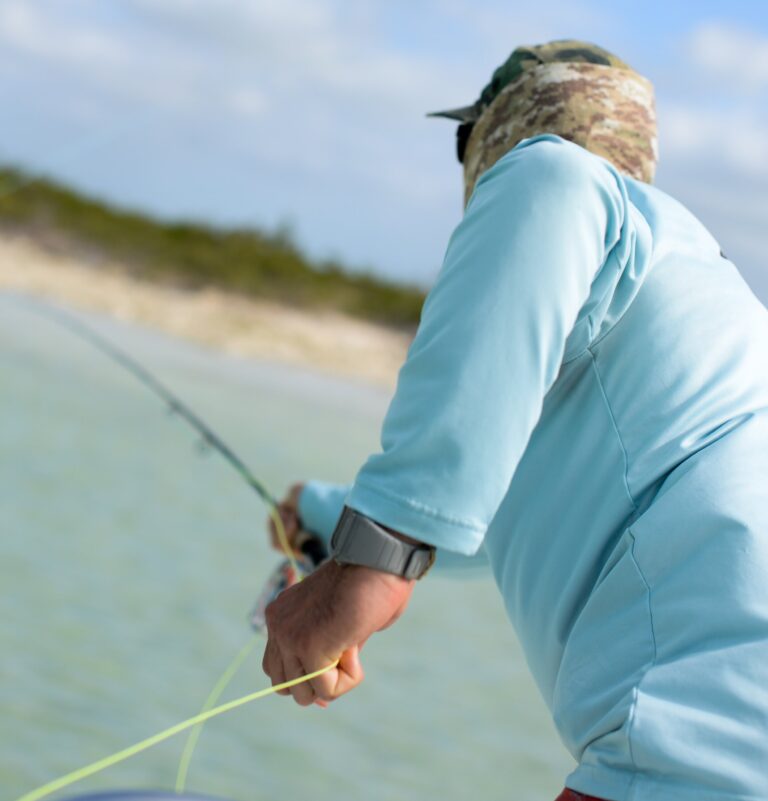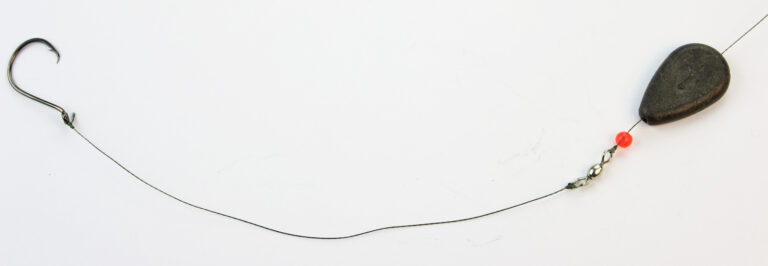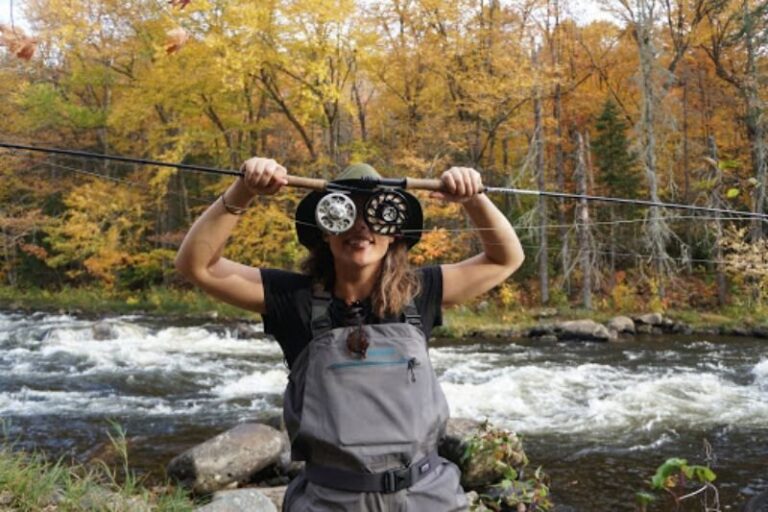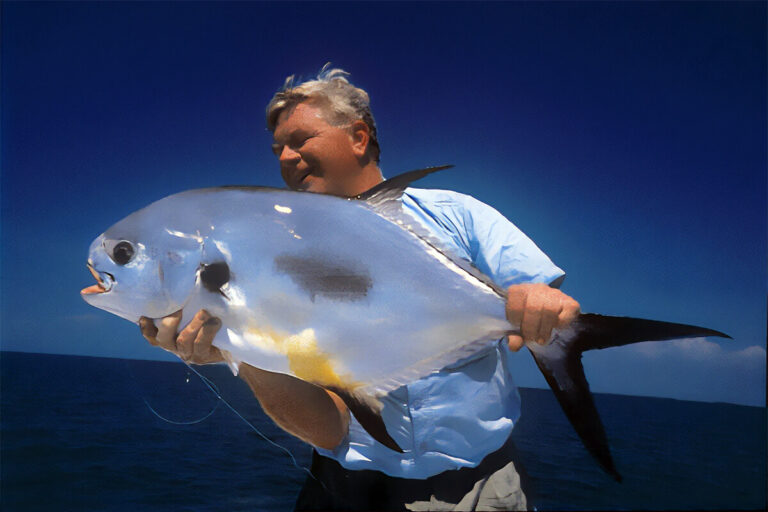Yes, you can do flats fishing without a boat. Here’s how.
Flats fishing is a type of angling that involves targeting fish in shallow, sandy or grassy areas known as flats. While having a boat can be advantageous, it’s not a necessity. In fact, many anglers choose to wade into the flats, armed with a fly rod or spinning reel, to catch species like bonefish, tarpon, and redfish.
This method requires stealth and careful observation to spot the fish and make accurate casts. By walking along the flats and positioning yourself strategically, you can effectively target fish without the need for a boat. However, it’s important to know and respect the local regulations and guidelines for flats fishing, as well as the best times and locations for a successful outing.

Credit: www.boatsafe.com
Benefits Of Flats Fishing Without A Boat
Affordable And Accessible Options
Flats fishing without a boat offers several benefits that make it an appealing option for anglers on a budget or those who simply prefer to fish on foot. Here are some key points to consider:
- Cost-effective: Flats fishing without a boat eliminates the need for expensive boat ownership or renting fees, making it a more affordable option for many anglers. You can save money on boat maintenance, storage, and fuel expenses, allowing you to allocate your budget to other fishing gear and accessories.
- Accessibility: Not everyone has easy access to a boat or a nearby fishing charter. By engaging in flats fishing on foot, you can explore fishing spots that are easily accessible from the shore. This opens up possibilities for anglers who may not have the means to own or operate a boat, or who might not be located near a boat-friendly area.
- Minimal gear requirements: While boat fishing often requires a variety of specialized equipment, flats fishing without a boat requires fewer gear essentials. A good pair of wading boots, a fishing rod and reel, some lures, and basic tackle are usually sufficient to get started. This reduces the initial investment required for gear, making flats fishing a more accessible option for beginners or those on a tight budget.
- Flexibility in fishing locations: Without the limitations of a boat, flats fishing allows you to explore a wider range of fishing spots. Shallow flats, saltwater marshes, and estuaries offer ample opportunities to catch a variety of species. When walking along the flats, you have the freedom to move around and fish in different areas, making it easier to adapt to changing conditions and find the best fishing spots.
Exploring New Fishing Spots
One of the advantages of flats fishing without a boat is the opportunity to explore new fishing spots on foot. Here are some key points to consider:
- Unspoiled fishing grounds: Flats fishing on foot gives you access to remote and unspoiled fishing grounds that are difficult to reach by boat. These areas often have less fishing pressure, meaning there is a higher chance of finding undisturbed fish populations and potentially hooking into larger specimens.
- Sight fishing opportunities: Wading along flats allows you to observe fish activity directly. With clear water and a keen eye, you can spot fish species such as bonefish, redfish, or tarpon cruising the shallows. This adds an exciting element of sight fishing, where you can cast specifically to the fish you see, enhancing the thrill and challenge of the angling experience.
- Intimate connection with nature: Flats fishing without a boat offers a more intimate connection with the environment. As you wade through the shallow waters, you can feel the texture of the seabed beneath your feet and immerse yourself in the sights and sounds of nature. This closeness to the environment can enhance your overall fishing experience and create lasting memories.
Enhancing Fishing Skills On Foot
Engaging in flats fishing without a boat can also improve your fishing skills in various ways. Here are some key points to consider:
- Stealth and patience: Wading along flats requires patience and stealth to approach fish without spooking them. It teaches you to be mindful of your movements, maintaining a low profile and minimizing disturbances in the water. This enhanced stealth and patience can transfer to other fishing environments and improve your overall angling success.
- Casting accuracy and technique: When fishing on foot, you often need precise casts to present your lure or bait in a specific spot. This helps develop your casting accuracy and technique, as you have to rely on your skills to place the bait within the strike zone. With practice, your casting abilities will improve, allowing you to effectively target fish in various fishing scenarios.
- Versatility in angling strategies: Flats fishing without a boat exposes you to different angling strategies. You may find yourself using various techniques such as sight fishing, blind casting, or actively searching for fish. This versatility broadens your angling knowledge and skills, making you a more adaptable angler overall.
Flats fishing without a boat offers a unique and accessible way to enjoy the excitement of fishing while exploring new spots and honing your angling skills. Whether you’re on a budget, prefer fishing on foot, or simply want to try something different, flats fishing can provide memorable fishing experiences and a deeper connection with the natural environment.
Gear And Equipment For Flats Fishing Without A Boat
Flats fishing is a thrilling and popular activity for anglers who enjoy targeting fish on shallow, sandy flats. While having a boat can provide easy access to these fishing grounds, it is not a requirement to enjoy this type of angling.
So, can you do flats fishing without a boat? Absolutely! With the right gear and equipment, you can have a successful and enjoyable flats fishing experience on foot. Let’s take a closer look at the key items you’ll need for flats fishing without a boat.
Lightweight Fishing Rods And Reels
- Opt for a lightweight spinning rod and reel combo, as they are versatile and easy to handle in the flats.
- Look for a rod with medium power and a fast action, which allows for accurate casting and good sensitivity.
- A reel with a smooth drag system is crucial for handling the powerful runs of flats species.
- Consider a rod and reel combo designed specifically for saltwater use, as they are built to withstand the harsh conditions.
Wading Gear And Footwear
- Invest in a good pair of waders that are breathable, durable, and designed for saltwater use.
- Neoprene waders are great for cooler water temperatures, while breathable waders are more comfortable in warmer weather.
- Ensure a proper fit to avoid discomfort and improve mobility.
- Pair your waders with sturdy wading boots or sandals with a non-slip sole to provide traction on slippery flats surfaces.
Essential Tackle And Bait
- Use a selection of artificial lures that are suitable for flats fishing, such as soft plastic baits, jerkbaits, spoons, and topwater lures.
- Opt for lures that mimic the primary prey species found in the area you’re fishing.
- Carry a variety of weights to adjust your lure’s depth according to the target species and water conditions.
- Don’t forget to pack extra hooks, swivels, and leader materials to replace any worn-out or damaged components.
Bait Options
- Live bait can be an effective choice for flats fishing, especially for species like redfish, snook, and tarpon.
- Shrimp, crabs, and small baitfish are commonly used live baits for flats fishing.
- Consider using cut bait if live bait is not available; it can still attract predatory fish.
- Keep your bait in a well-maintained live bait well or bucket to ensure its freshness and liveliness.
Flats fishing without a boat is entirely possible, and with the right gear and equipment, you can have a rewarding experience. Remember to invest in lightweight fishing rods and reels, get proper wading gear and footwear, and bring along essential tackle and bait.
By following these guidelines, you’ll be well-equipped to explore the flats on foot and enjoy the excitement of catching fish in this unique and challenging environment.
Techniques And Tips For Flats Fishing Without A Boat
Locating Productive Flats
- Look for sandy or grassy areas with shallow water, as these are ideal habitats for various flats species.
- Pay attention to areas near mangroves, as they provide shelter and food for fish.
- Research local fishing reports and talk to experienced anglers to find the best spots.
- Take note of any visible signs of fish activity, such as tailing fish or bird activity.
- Utilize online maps and satellite imagery to identify potential flats.
Understanding Tides And Currents
- Learn how tides and currents affect fish behavior and feeding patterns.
- Find out the times of high and low tides for your fishing location.
- Focus on fishing during the incoming tide, as it brings baitfish to the flats and attracts predatory fish.
- Take advantage of outgoing tides, which create current flows that fish use to ambush prey.
- Adjust your fishing techniques based on the strength and direction of tidal movements.
Stealthy Approach And Casting Techniques
- Move quietly to avoid spooking fish on the flats. Walk gently and avoid loud noises.
- Wear clothing that blends with the surroundings to minimize visibility.
- Practice casting accuracy to present your bait or lure in the desired location.
- Use polarized sunglasses to spot fish and make accurate casts.
- Employ stealthy casting techniques, such as bow casting or sidearm casting, to prevent line and fly line slap.
Remember, flats fishing without a boat requires careful observation and understanding of the flats’ ecosystem. Locate productive flats, study tides and currents, and approach stealthily while using efficient casting techniques to increase your chances of success. So grab your fishing gear and explore the exciting world of flats fishing on foot.
Conclusion
Flats fishing without a boat is not only possible but also an exciting way to enjoy this unique angling experience. It allows you to explore the shallow coastal waters and target a variety of fish species in a cost-effective manner.
By wading or utilizing kayaks, paddleboards, or canoes, you can access shallow areas where boats can’t venture. Walking along the flats gives you a more intimate connection with the environment and allows you to spot fish easily. Additionally, with the right gear and techniques, you can still catch trophy-sized fish and have memorable encounters.
So, for those who don’t own a boat or prefer a more immersive fishing experience, flats fishing without a boat is a viable and rewarding option. Whether you choose to walk or paddle, remember to respect the environment, follow regulations, and have fun exploring the exciting world of flats fishing.




